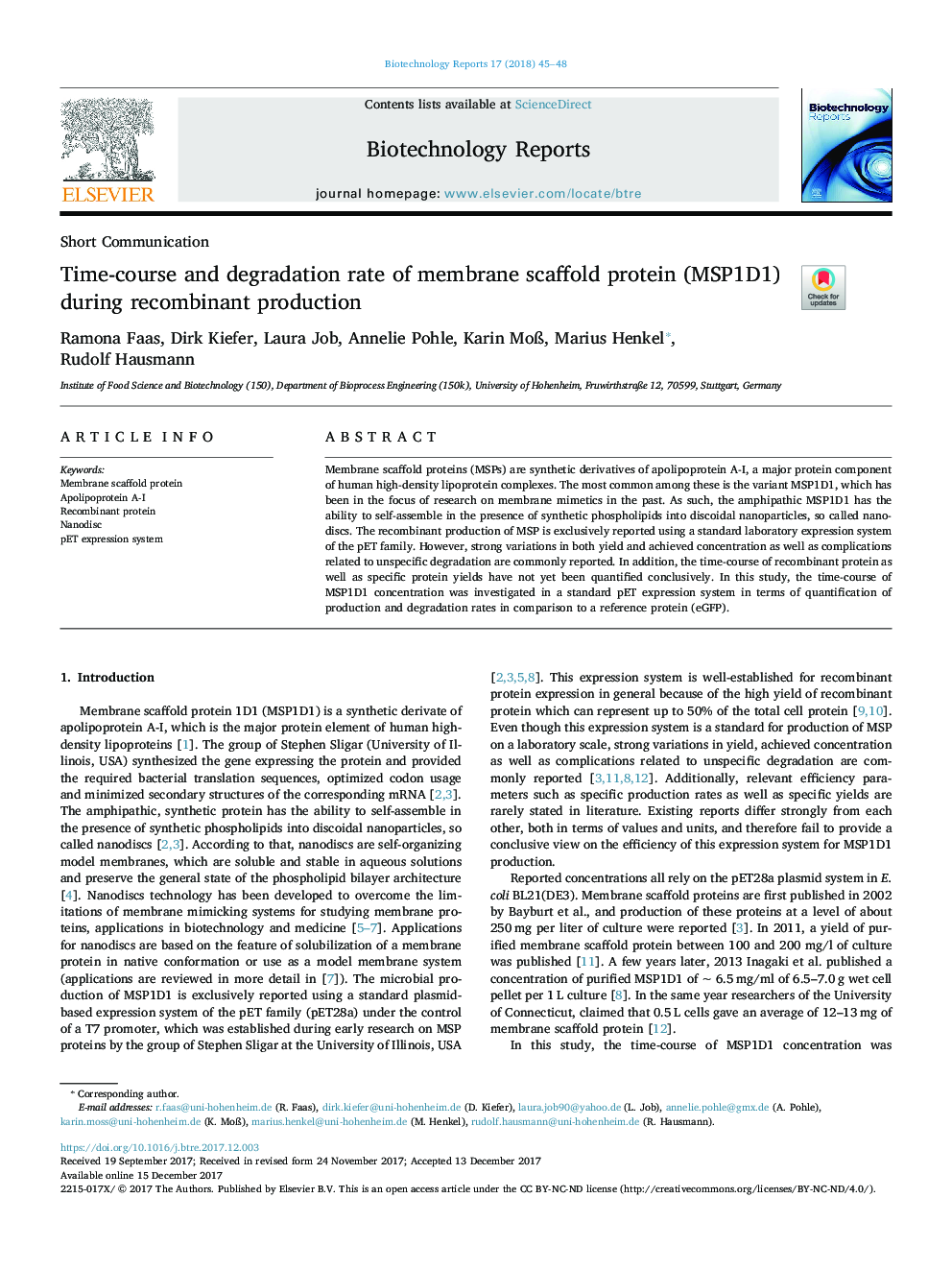| Article ID | Journal | Published Year | Pages | File Type |
|---|---|---|---|---|
| 7234945 | Biotechnology Reports | 2018 | 4 Pages |
Abstract
Membrane scaffold proteins (MSPs) are synthetic derivatives of apolipoprotein A-I, a major protein component of human high-density lipoprotein complexes. The most common among these is the variant MSP1D1, which has been in the focus of research on membrane mimetics in the past. As such, the amphipathic MSP1D1 has the ability to self-assemble in the presence of synthetic phospholipids into discoidal nanoparticles, so called nanodiscs. The recombinant production of MSP is exclusively reported using a standard laboratory expression system of the pET family. However, strong variations in both yield and achieved concentration as well as complications related to unspecific degradation are commonly reported. In addition, the time-course of recombinant protein as well as specific protein yields have not yet been quantified conclusively. In this study, the time-course of MSP1D1 concentration was investigated in a standard pET expression system in terms of quantification of production and degradation rates in comparison to a reference protein (eGFP).
Keywords
Related Topics
Physical Sciences and Engineering
Energy
Renewable Energy, Sustainability and the Environment
Authors
Ramona Faas, Dirk Kiefer, Laura Job, Annelie Pohle, Karin MoÃ, Marius Henkel, Rudolf Hausmann,
